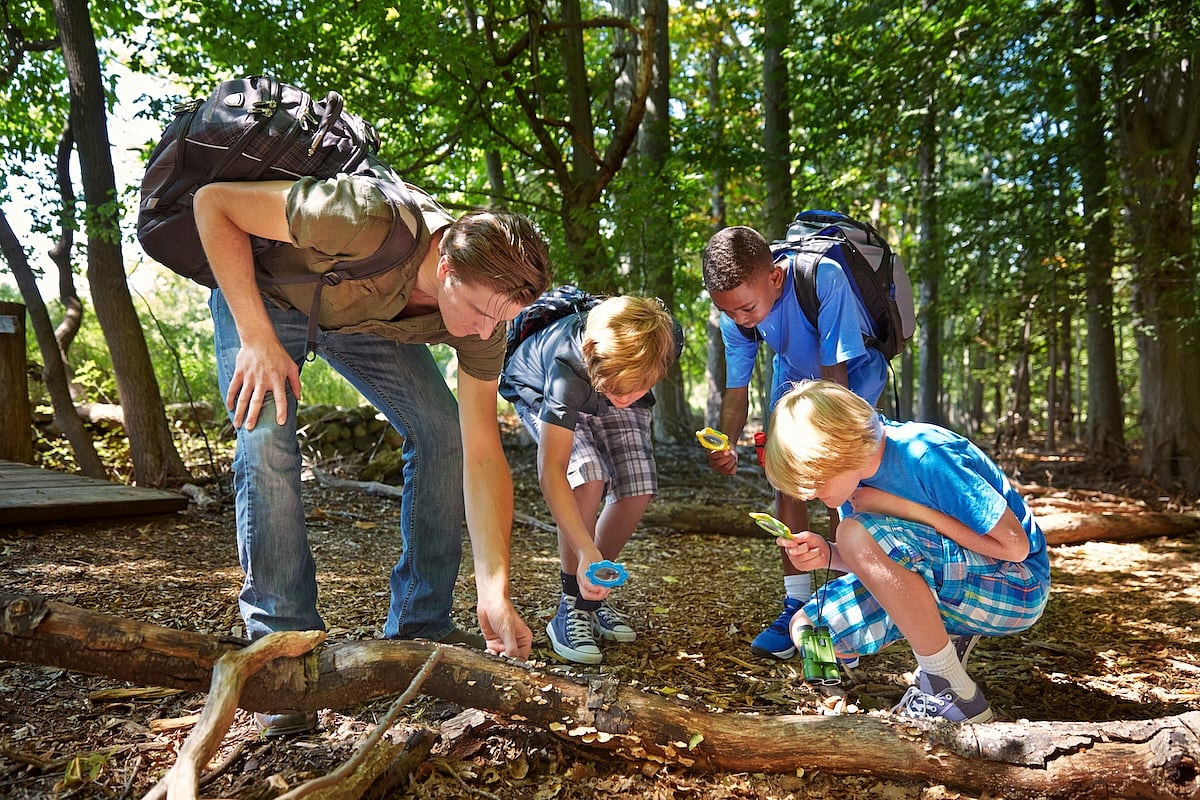Get Healthy!

- Ernie Mundell
- Posted November 18, 2024
When Schools Give Kids Time in Nature, Anxiety and Behavior Issues Ease
A dose of green may be just what school kids with anxiety, depression and other mental health issues need, new research shows.
Canadian investigators found that a school program that let 10- to 12-year-olds spend a little time each week in nature paid dividends in improving kids' mental well-being.
"Nature-based programs may offer targeted benefits for children with higher levels of mental health vulnerabilities and potentially act as an equalizer of mental health among school-age children,” said study co-author Sylvana Côté, a professor of public health at the University of Montréal.
Her team published its findings Nov. 15 in the journal JAMA Network Open.
The new study included about a thousand Quebec kids in grades 5 and 6, enrolled in schools throughout the province. All of the schools were located within a mile of a park or green space, and the study took place in springtime.
Over the three months of the study, kids were randomly selected to either stay in school per usual throughout the week or to spend two hours per week with teachers in a park or green space.
Schoolwork was done in either environment: Even when outdoors, kids were taking part in regular classes in subjects such as math, languages or science.
The children were also asked to engage in a short 10- to 15-minute activity that was focused on some aspect of mental health. That might include drawing a tree or a mandala, writing haiku poems, "mindful" walking or talking about the cycles of life and death in nature.
The main finding: Kids enrolled in the green space intervention saw noticeable improvements in mental health.
According to a university news release, "teachers noted that the biggest changes in behavior occurred in children with the most significant problems at the outset, including anxiety and depression, aggressivity and impulsivity, or social problems relating to interaction with their peers."
Teacher said kids who had mental health issues appeared calmer, less anxious and more attentive in class after getting back from a visit with nature.
“We found that children with higher mental health symptoms at baseline showed greater reductions in symptoms following the intervention,” said study senior author Marie-Claude Geoffroy. She's an associate professor of psychiatry at McGill University.
“The idea for the project came up during the pandemic when people were worried about the health risks of children spending so much time inside the school each day,” Geoffroy noted. “My kids and I spend lots of time in parks, so I’ve seen the benefits of spending time in nature, both for myself and for them. So, I thought maybe we can have a free and accessible intervention where school children can spend time in nature, and we can measure the effects this has on their mood and behavior.”
Tianna Loose is a post-doctoral fellow at University of Montréal and the first author of the paper.
“Our results are particularly relevant for educators, policy-makers and mental health professionals seeking cost-effective and accessible ways to support vulnerable students,” she said in a university news release. “The intervention was low-cost, well-received and posed no risks, making it a promising strategy for schools with access to green spaces.”
Would such interventions help older kids? The Montreal team hope to find out in future studies focused on teenagers, who'll be asked to provide their own thoughts on developing such a program in their schools.
More information
Find out more about the impact of nature on mental health at the American Psychological Association.
SOURCE: University of Montreal, news release, Nov. 15, 2024







